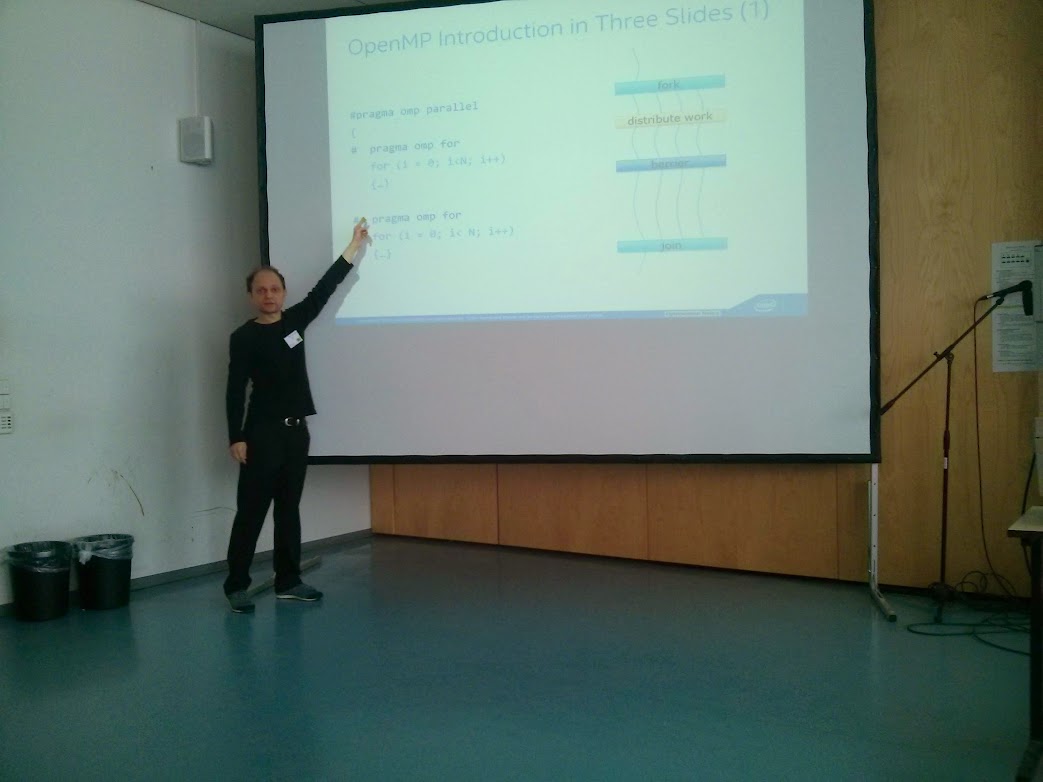This post has moved to eklausmeier.goip.de/blog/2014/07-17-day-2-workshop-programming-of-heterogeneous-systems-in-physics.
Day 2 of the conference had below talks. Prof. Dr. Bernd Brügmann gave a short introduction. He pointed out that Jena is number 10 in Physics in Germany, has ca. 100.000 inhabitants, and 20.000 students.
- Dr. Karl Rupp, Vienna, Lessons Learned in Developing the Linear Algebra Library ViennaCL. Notes: C++ operator overloading normally uses temporary, special trickery necessary to circumvent this, ViennaCL not callable from Fortran due to C++/operator overloading, eigen.tuxfamily.org, Karl Rupp’s slides, with CUDA 5+6 OpenCL and CUDA are more or less on par,
- Prof. Dr. Rainer Heintzmann, Jena, CudaMat – a toolbox for Cuda computations. Continue reading

